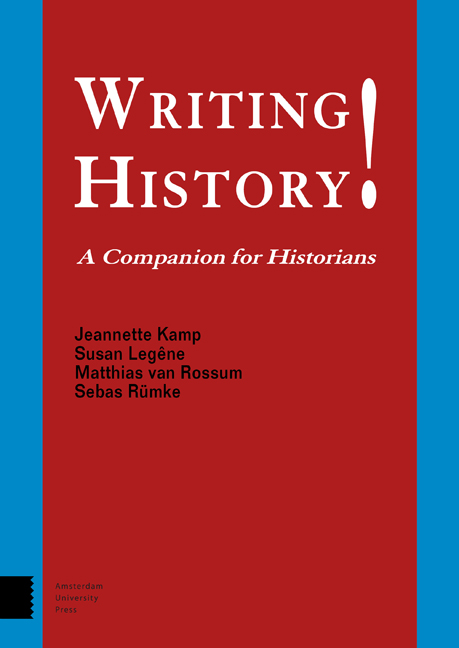Book contents
- Frontmatter
- Contents
- Introduction
- Structure of the Book
- 1 Historical Research: The Importance of the Research Question
- 2 The Building Blocks of the Historical Method
- 3 Applying the Historical Method
- 4 Writing History: Narrative and Argument
- 5 Presentation and Historical Debate
- 6 A Historian – Now What?
- Appendices
- I Guidelines for Notes
- II Other Styles of Notes
- Acknowledgements
- Index
6 - A Historian – Now What?
- Frontmatter
- Contents
- Introduction
- Structure of the Book
- 1 Historical Research: The Importance of the Research Question
- 2 The Building Blocks of the Historical Method
- 3 Applying the Historical Method
- 4 Writing History: Narrative and Argument
- 5 Presentation and Historical Debate
- 6 A Historian – Now What?
- Appendices
- I Guidelines for Notes
- II Other Styles of Notes
- Acknowledgements
- Index
Summary
This guide for prospective historians stresses the understanding and skills that are essential for the historian's craft. During your time at university, you will become involved in that craft for the first time. The structure of the course includes the fundamental parts of a historian's job as well as practice situations in which current knowledge is transferred by means of reference works, exams, and seminars but also research situations in which new historical knowledge is generated. It is generated in tutorials, by means of presentations, papers, theses, lectures, or seminars. Regard your course as a way to practise history, not as a ‘preliminary stage’ for that practice. Universities are places where history is written, and students contribute to it while acquiring the ins and outs of the job. Students are part of the academic community and are more than welcome to join in activities related to the field by attending lectures by guest speakers, the inauguration speeches of newly appointed professors, dissertation defences and the like.
Professional opportunities
What kind of job does a historian have, actually? Depending on their disposition and their academic careers, historians are trained to be either practical or contemplative and are highly regarded intellectuals with a wide range of skills. A Bachelor programme, whether or not it is combined with a minor focused on teaching or another career, is a fully rounded course that in theory prepares people for the realities of a profession. A Master's degree programme and a Research Master's programme provide historians with further qualifications. Moreover, the Research Master's programme prepares students for a potential future job as a researcher who works on a dissertation. Historians can often be employed in many fields, including education, journalistic writing, broadcasting companies, ICT companies, museums and the heritage sector, publishing, tourism, government agencies, non-government organisations, or more commercial businesses. Some historians become politicians, union leaders, or governors, while others move into writing novels. Needless to say, this list of possible careers is by no means complete.
Based on their study of and knowledge about the past, historians relate to their fellow historians, both in writing and orally, and to society as a whole. And, depending on the subject, there is scope for historians to give their opinions on current affairs.
- Type
- Chapter
- Information
- Writing History!A Companion for Historians, pp. 123 - 130Publisher: Amsterdam University PressPrint publication year: 2018

